We know it can be hard to come up with easy, quick things to do with your children, so we thought we’d share a favourite of our little scholars. Learn how to make your own moon sand in minutes with a few of these kitchen staples!
Preparation Time: 5 minutes
Cooking Time: None
Did you know that clay is not only a fun material for children to play with but also incredibly beneficial for their development?
What’s fantastic about clay is its open-ended nature. There’s no right or wrong way to play with it, giving children the freedom to explore and express themselves. Whether they’re rolling it into balls, flattening it into pancakes, or creating intricate sculptures, each action reveals something unique about them. It could be their level of focus, their creativity, or even how they approach problem-solving.
Benefits include:
These are all important skills for children, especially as they prepare to move into formal education. The benefit of using clay is that it’s a natural, moldable medium that can be used as a cement, an adhesive and even a paint.
Paul R White, an American clinical social worker, has been using clay as a therapeutic tool for over 30 years. In his book, CLAYtherapy, he talks about how clay play can naturally facilitate meaningful conversations between children and adults. He developed numerous unique aids and techniques that have assisted him in teaching children to cope with stress, express feelings and to solve problems, including through the use and manipulation of clay. White also presented a paper on clay therapy to the World Congress of Child Play Therapy and Child Psychotherapy in London, England.
He has used clay in his practice as an ice breaker, as an aggression reliever and as a primary tool in treatment.
In his book, White says “Through mutual clay play, a conversation between child and counselor automatically emerges. Dialogue doesn’t have to be forced or fabricated, but happens naturally when the counselor is revealing, demonstrating and teaching this dynamic and engaging clay process and the child is asking, learning and experiencing his or her own trial and error. This manner of interaction links the adult with the child through a hands-on, verbal, nonintrusive, problem-solving counselling process.”
Lisa Terreni, a senior lecturer in early childhood education, also champions the use of clay. She believes it gives children another language for expressing their thoughts and ideas.
“From many anecdotal observations of children using clay I feel strongly that, apart from teaching young children the physical skills required to use the medium successfully to create three dimensional artworks, using clay gives children another language for expressing their thoughts, ideas and emerging working theories about their world,” she said in a blog post for Early Arts.
Marvin Bartel, a professor of art at Goshen College in the United States, says in a blog post on his website that ‘clay is so fascinating that some children work for long periods without any adult motivation to maintain their interest. It can be a great way to extend the attention span of some children.’
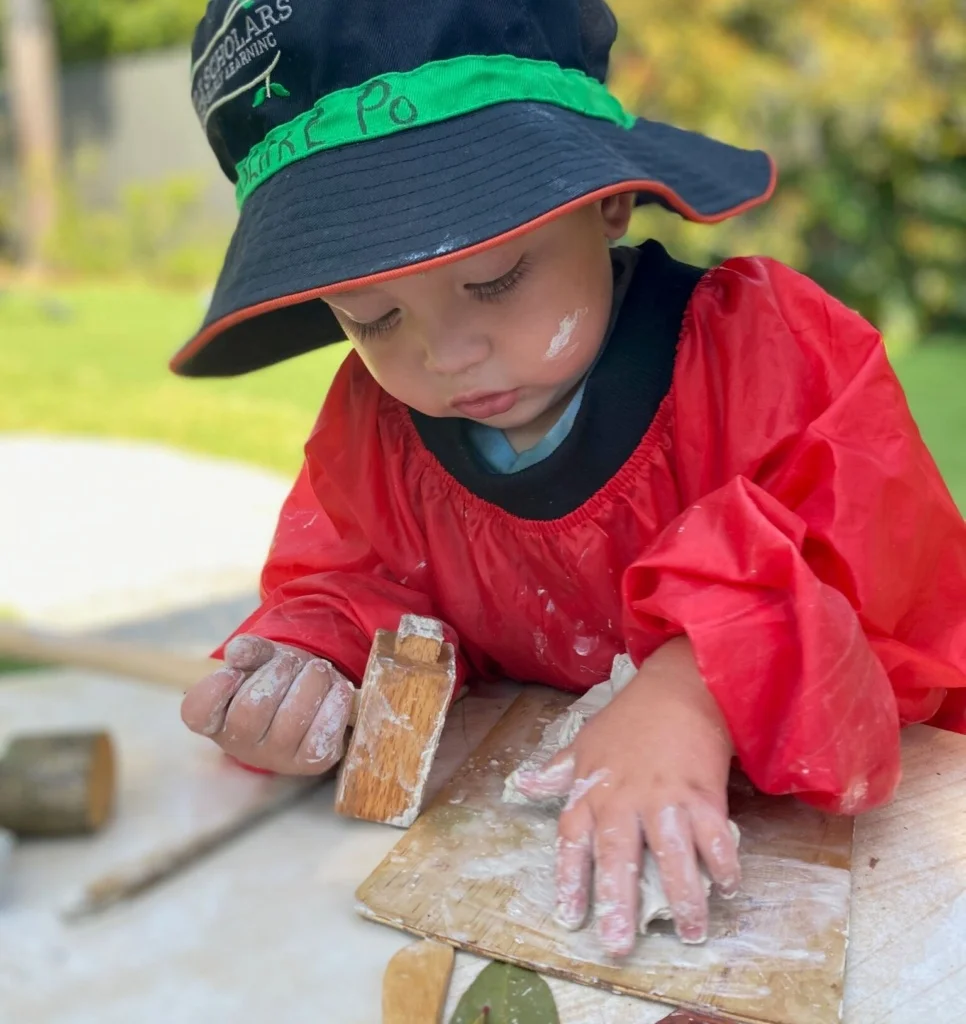
According to experts from Pennsylvania State University, children will show many parts of themselves through clay experiences:
One of the lesser-known but incredibly important benefits of clay play is muscle development. When children manipulate clay, they’re actually engaging both fine and large muscles, which is crucial for their physical development.
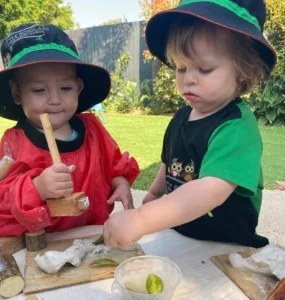
Anxiety
One study in Iran aimed to examine the impact of clay therapy and narrative therapy on reducing anxiety levels in pre-school children. The study involved 30 kindergarten children who were divided into three groups: 10 in the clay therapy group, 10 in the narrative therapy group, and 10 in the control group. The study found significant differences in anxiety levels among the groups. Both the clay therapy and narrative therapy groups showed a reduction in anxiety compared to the control group. The clay therapy group had a mean score of 3.63, and the narrative therapy group had a mean score of 2.83, both of which were significantly different from the control group’s mean score of -0.71. However, there was no significant difference between the clay therapy and narrative therapy groups in terms of anxiety reduction.
The study concludes that both clay and narrative therapies are effective in improving self-esteem, school performance, and sociability of the children, as reported by the parents.
Psychosocial Wellbeing
Another study out of Kenya, looked at how clay play supported children who lost access to schools during the pandemic, affecting children’s right to education and their psychosocial wellbeing.
The study, published in the East African Journal of Arts and Social Sciences, looked into the psychosocial effects of the COVID-19 pandemic on children and how play, particularly with painting and clay modelling, can be a therapeutic and educational tool. The paper argues that these forms of play can help children cope with the stresses and traumas induced by the pandemic, while also promoting cognitive and social learning.
The study argues that play with art forms like painting and clay modelling can be powerful tools for cognitive and social learning. They can also serve as therapeutic activities to counter depression and violent behaviour. Activities such as clay modelling and painting are described as non-serious activities that free the mind and are excellent for expression. Clay is described as a malleable material that can be easily manipulated, while painting offers a colourful medium for expression.
The study suggests that these art-based activities should be integrated into the curriculum, especially for children aged four to six, to enhance their psycho-motor and creativity development.
Fine Motor Skills
An Indonesian study investigated the impact of constructive play with clay on children’s fine motor skills. The small study by researchers from STKIP Kusuma Negara included two groups of 11 children each, one as the experimental group and the other as the control group. The study used test observation techniques for data collection and employs both descriptive and nonparametric statistical analysis. The results indicated a significant difference between the two groups, suggesting that constructive play with clay positively impacts children’s fine motor skills.
In the study, the authors highlight the physical aspects of working with clay.
“Working with clay fosters large muscle and fine motor control. Clay is fairly resistant and will need to be kneaded and worked to make it pliable. Children can stand or sit while using clay. Standing provides the advantage of a whole-body muscular reaction to the clay. Hard clay provides solid resistance the child must overcome. This will involve using the shoulders, arms, hands, and fingers. Playing with clay develops large muscles and fine motor control because the clay is quite resistant and kneaded to make it soft.”
The benefits of clay play in early childhood development are supported not only by expert opinions but also by a growing body of scientific research. From fostering creativity and social skills to enhancing both fine and large muscle development, clay play serves as a multifaceted educational tool.
References:
Teaching a small child self-respect, to find and use his or her own voice can be one of the most valuable lessons you share as a parent or special adult in that child’s life. When children can speak up for themselves, this will help them in every aspect of their lives, for the rest of their lives. Having the ability to use their voices, they’re able to command respect, protect their feelings and their bodies, and increase their confidence in their ideas, their relationships and in various social settings. There are several facets to teaching a child to use his or her voice.
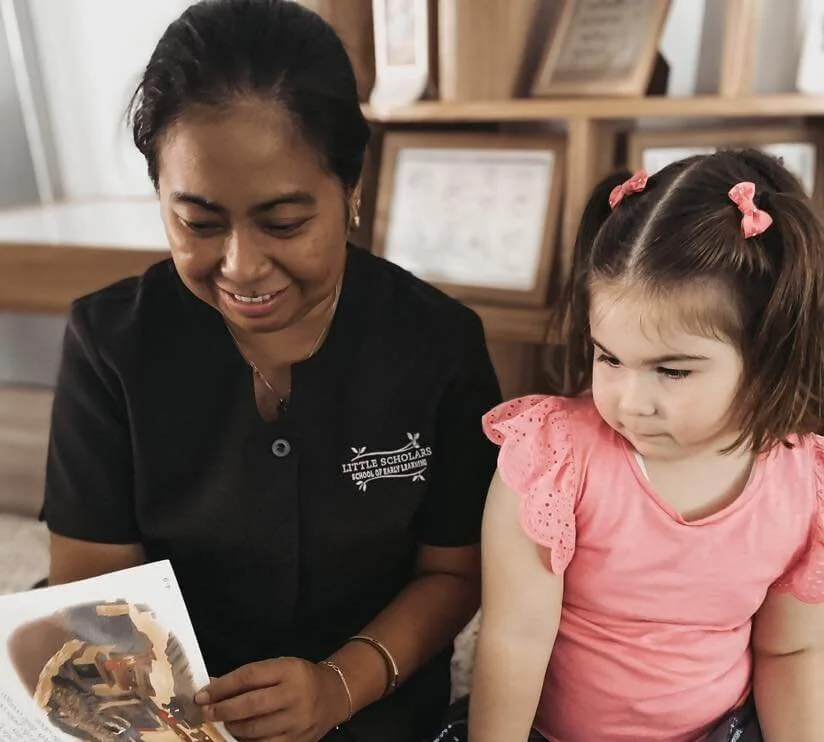
Allow your child to make choices about his or her body. You can start by allowing them choices on what to wear, and checking with them if it’s ok to help them dress or undress. This is the beginning of teaching your child about consent, even if he or she is a baby. Loved ones can also model consent by asking, ‘May I pick you up?’ or ‘May I give you a hug?’ and in the bath or nappy changes, asking permission before you clean or wipe your child in private places. Those conversations can lead to discussions about appropriate versus inappropriate touching, and even little children should expect to be asked permission from anyone who comes into contact with them. Even if they’re your children and you’ve been looking after them literally since day one, you’re showing them you respect their body by asking first.
This is the same in our campuses. It’s our policy to maintain the rights and dignity of the children, that includes in terms of nappy changing and toileting, so we try to provide privacy where possible from everyone in our campuses. Our educators are all trained in respectful care, and host not-for-profit visitors such as Bravehearts, who teach children about advocating for body safety, yes and no feelings, the difference between parents, trusted adults like doctors or educators looking after their bodies, versus strangers and unsafe adults.
We recommend teaching children young the proper names for their body parts and use them any time you are talking about them. When they’re first learning to speak, this can be a great bathtime conversation as you point out the names of various body parts. Keep any cringing when talking about body parts to yourself. The sexualised nature of private body parts — giggling or shame when talking about them — that’s adult stuff that we don’t need to put onto children.
“I teach my children “Your body belongs to you and you only” as well as naming their correct private parts which are theirs only,” says Holly, a lead educator in the Senior Kindy studio at our Staplyton campus. “Children really need to be educated about body awareness/safety.”
Why is teaching them proper names so important? Getting used to these conversations young can reduce embarrassment, something unnecessarily expressed by many adults and in previous generations, and establish ongoing communications with children about sex/sexuality. But most importantly, this educates and empowers little ones about their body safety, and research shows this could protect them from predators.
Explain to your child that nobody is allowed to touch our private parts unless it’s for hygiene or medical reasons and that people who have to come in contact with your child’s private areas have to ask permission first. But while there’s no shame in their bodies, they should also know there are parts of the body that are private and have it explained to them those parts are just for them.
Holly says additionally, they have conversations with the children with scenarios about stranger danger and the steps they need to remember in case anything like that happens. They also have conversations about who the children name as their ‘safe people’.
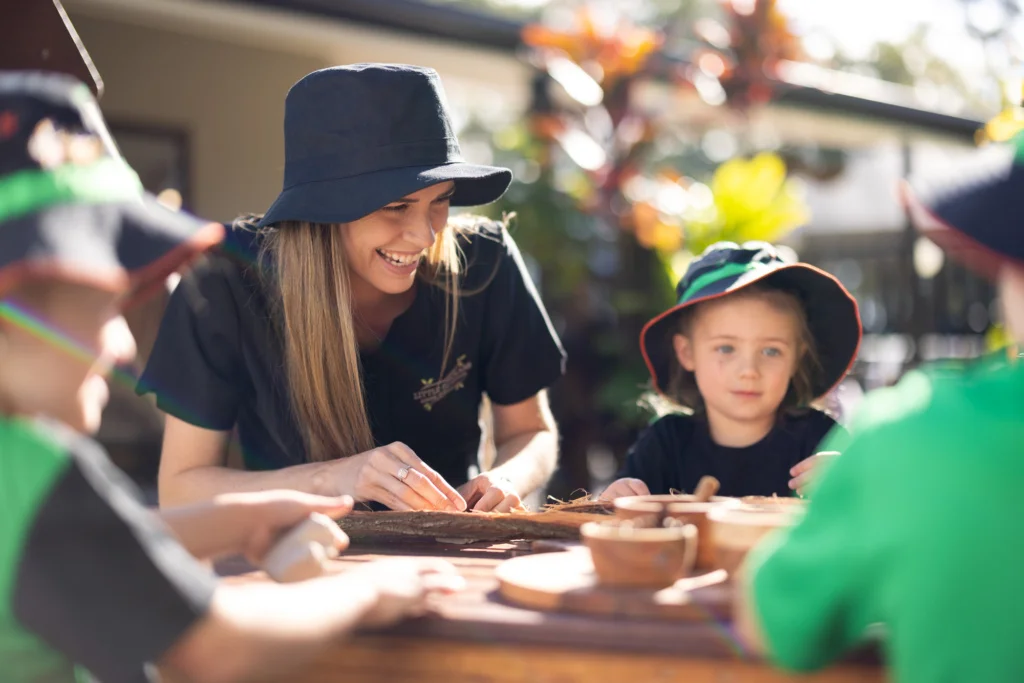
There are lots of ways to show children respect, and it’s important when you expect them to respect others. Try to refrain from talking about your child, especially in front of them, to others, or be mindful of what you do share. This shows your child you respect his or her privacy. You may remember a time when you were younger when a parent or someone you loved shared a story that embarrassed you – even as an adult, you remember. Your child could too. Before you tell a story, ask yourself how they’d feel about you telling it.
In our increasingly digital world, this also goes for sharing everything about them on social media. Once it’s online, it’s there forever. Even if it in theory disappears after 24 hours, screenshots can be taken. That also goes for other people’s children – other parents may not want them on social media, so keep online sharing to your own children. Consider what you are posting, would your child want to have a picture for the world to see of themselves on the potty or with a bare bottom when they’re older? Keep in mind others may Google them in the future; potential and current employers, associates, and most scarily, predators.
Another way you can show your child respect is by discussing inappropriate behaviour away from public settings. Keep important conversations for a time when you can discuss them privately. You may think embarrassing them by calling their actions out in public might stop them from doing it again, but this will likely backfire. You can say in public something like ‘We will have an important talk about this later.’ and stick to that. But highlighting negative behaviours in public only causes humiliation and shame, and no one needs to feel that way.
Don’t force children to hug or kiss anyone, even family. You could ask, for example, how they’d like to say greet people in each social situation.
“I offer children the choice of a hug, holding hands or sitting together as an alternative to allow them to make the choice. When saying hello or goodbye they can say just the words, high five, fist bump or hug, but it is always up to them,” says Claire, an educator from our Nerang campus. These options still teach them to be polite if that’s important to you, but shows them how they can do it within their comfort level and respects their physical boundaries.
Parents often focus on teaching children to be respectful, such as learning to apologise when in the wrong, but teaching children to just say ‘sorry’ versus understanding how their actions actually affect others and learning to own their actions is a better way to develop their emotional maturity. By asking the children questions such as ‘how do you think your sister felt when you hit her?’ or ‘how were you feeling when you broke that toy?’ and ‘what would you like people to do if they recognise they made you feel sad?’ will get them to begin to understand owning up to their mistakes and learning to say sorry meaningfully.
This is also where modelling comes in. It’s important to apologise to your child when you make a mistake. They learn from you, and by saying you’re sorry sincerely shows children that no one is perfect, that everyone makes mistakes, but it’s how we respond to them that counts. This could be done in other ways, rather than an adult yelling when angry, but by speaking kindly and respectfully to them, even when it’s difficult to, or if you’re setting a limit, children begin to understand their actions have consequences and can respond to situations differently in future.
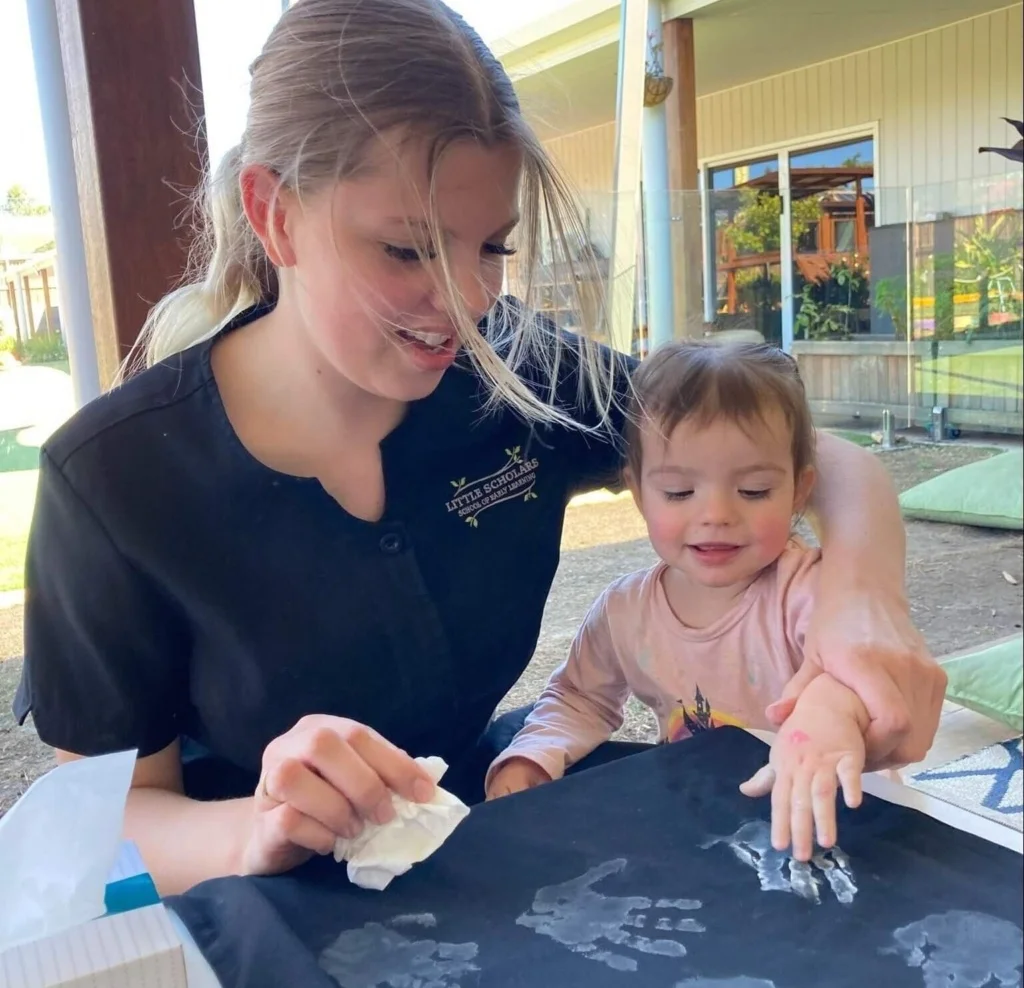
Let your child answer for themselves. Refrain from answering questions directed at them. If they don’t want to answer, don’t make a big deal about it.
“We use language to acknowledge how children feel for example, ‘I can see that you are upset, how can I help you?’” says Claire. “We use this language to help children to speak for themselves every day so it becomes second nature to them.”
We guide our educators to tune in to the behaviours, actions and emotions of the child to identify what they may be trying to communicate.
“Through listening to gestures cues, along with words, shows respect and ensures we are responsive to children and value their rights,” says Susan Cooper, group pedagogical leader for Little Scholars. “It is important for early childhood educators to validate what the children may be feeling and this is done by our educators asking the child about their emotions and setting spaces and environments where the children feel safe and secure to express their feelings comfortably.”
Tell them it’s OK to say ‘no’ if they feel unsafe or unsure. This teaches children and young people that it is OK to stand up for themselves and to be assertive if something doesn’t feel right. Following this, they should know that nothing is so ‘yucky’ that they can’t tell someone they trust about it. Hopefully, this is something your child never has to deal with, but if they’re asked to keep something secret that hurts them or makes them uncomfortable, then by talking to them about situations like this, they’ll speak up straight away and not worry about getting in trouble by breaking a ‘secret’. Teach them the difference between secrets, privacy, and surprises.
Here’s an explanation of the differences. A surprise is something that should be fun, happy, and temporary. Secrets that are meant to be kept for a long time are usually meant to protect someone or keep someone from getting in trouble. Although we want children to be wary of secrets (therefore, keep language in mind) —and especially to come to us when they have an unsafe secret—they also need to learn that some things should be kept private. Privacy isn’t about keeping someone from getting in trouble; it’s about respecting a person’s personal information.
Finally, please feel free to talk to your educators or campus managers about how they manage any of these conversations and talk to them about how you prefer it handled. We want your children and your family to feel respected and heard, safe and happy in our care, and if we can help with those conversations, we’d like to. These are also conversations you should have with extended family or people who will be in your child’s life.
Most importantly, model the person you want them to become. Children will remember their biggest role models their entire lives, so being a respectful, caring, supportive, confident adult influence will teach children the best person he or she can become. By showing them the respect they deserve and teaching them about self-respect, we’re setting them up for their future. Self-respecting and resilient children who spend time in positive, affectionate and supportive environments, led by clear and reasonable guidelines, and have healthy connections to parents and other adults, grow to be adults with the ability to bounce back from challenging situations their entire lives. And, all of the ways you show respect for children teaches them how they should show respect for others.
If you have a child at Little Scholars, you’ve likely heard of ‘The Collective’ but do you know what it is? We thought it might be time for an explainer!
Little Scholars School of Early Learning’s The Collective is a service-wide, multi-faceted educational initiative, designed to enhance each child’s learning and development and best support educators’ time spent with children.
The development of The Collective is based upon early childhood pedagogy. Children are provided the time and space to explore, imagine, create, problem solve and develop social groups and guided to find their individual learning journey. The Collective allows for educators to have freedom in how they document and plan for children. This supports a strength-based approach with our team and highlights individual skillset of our educators and value the multiple voices being heard, embedding a collective response to children’s learning.
Understanding the demands of documenting processes, Little Scholars wanted to create a streamlined approach to the educational program across all our campuses. The intention was to demonstrate quality over quantity, foster children’s growth, and develop them to become successful citizens and critical thinkers. This curriculum approach also supports educators to adopt theory and put it into practice. Educators, through observations of children’s play, conversations and their interactions within their environment, explore what the child might be thinking. This is then the beginnings of the planning process within our collective curriculum.
Alice Micklewright, campus manager of Little Scholars Burleigh, with her team, came up with the idea of The Collective and led its early development.
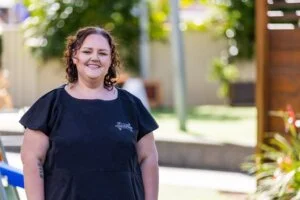
Alice Micklewright, campus manager of Little Scholars Burleigh
“I wanted to look at curriculum for a while because there were a lot of things that we felt were just kind of there but didn’t feel like they had a place, so streamlining that focus was good.”
“We had a lead educator meeting one night and we talked about how the educators were feeling in general, and some of the comments were just like ‘I feel like I spend more time writing things down than I do with children.’ They are still with the children most of their time, but when you’re feeling like you’re trying to focus on something else and not giving the whole attention to something and being present, it can be really unsettling.”
That was at the peak of the pandemic crisis, according to Alice, and her team became cognisant that what they were doing in the moment was far more important than anything else.
“The first conversation we had, we looked at what we were doing and wrote down notes on the back of the pizza box – ideas about why we’re doing what we were doing, what the processes were and what we felt didn’t really fall within the planning cycle appropriately for it be conducive to having good outcomes for everybody involved.”
“We really started The Collective off the back of our Engagement Initiative – that’s the one day a month we have with no documentation of photos, no technology. It was purely based on educators getting back in touch with engaging with children and not focusing so much on some of the perceived pressures that have come about in the sector in terms of things like families’ expectations on photos being received, and the amount of documentation that sometimes can spiral. It is a regulation for services to demonstrate planning toward an educational program for children. We wanted a streamlined approach to guide our campuses to set the benchmark to support and engage.
“It’s really been child-driven on the focus of what we want to do,” she says.
Melanie Excell, Operations Manager for Little Scholars, agrees.
“When we started this process, we gathered information from a variety of different perspectives – including families and children, and professional training and resources,” Mel says.
There was a vast amount of training for educators to understand new processes.
“At its core, it’s really been just trying to pare back what we were doing to deliver quality curriculum for children, that supports their outcomes and their developmental needs, to generate a stronger culture of critical thinkers in terms of children and educators,” Alice adds.
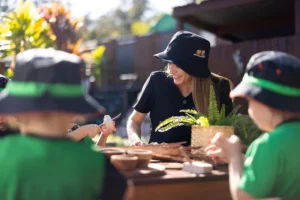
Weekly, rather than daily, detailed written updates are now sent to families, allowing educators to focus more on being with children. Families still get photos daily to see what their child has been learning and enjoying that day, but learning outcomes, routines, links to Early Years Learning Framework and research are saved for the end of the week, and individual child updates are sent out termly.
“Sometimes you find that services will continue to add a lot of documentation [about each child] and to try to meet the needs of the framework and the standards, when it can be a lot simpler and child focused,” Alice says.
The critical reflection component of the curriculum is most important, according to Alice.
“Everything we do really needs to have a purpose, a thought behind it and a reason why we want to engage in it that way, and then involving the children in that process and the families as well.
“If you look at the planning cycle in the National Quality Framework (NQF), you gather information from an idea or interest that children have, engage the children in what they’d like to do moving forward and analyse the information you’ve gathered, plan for it, then reflect and review is the whole cycle.”
For example, educators might look at children who are engaging in an activity and would consider it across developmental milestones and outcomes what they think the children are trying to achieve. In a nursery, where early learners can’t yet speak, educators might observe a child picking up resources and putting them into a basket and taking them back out, a learning behaviour known as a schema.
“Children are exploring all of these different concepts every day, even though you may not realise because they’re playing and it’s natural for them to do that,” says Alice.
The use of open-ended questioning with children supports the understanding of their play and helps gain a child’s perspective as opposed to an adult’s agenda.
The planning comes from what educators talk about in the moment, and educators act on what they’ve gathered, followed by a review at the end, where they decide if they activity worked well or didn’t, and if it didn’t, questioning why – were the children just not interested in that topic anymore, and is there a reason why?
Little Scholars produces individual learning journeys for each child that highlight significant milestones and achievements to their development whilst in our care. Various modes of documentation record the learning identified through the child’s participation in our program.
Little Scholars sends out the personalised mid-year assessments to the families and then the end of the year they’ll receive a transition letter which wraps up their child’s journey, acknowledging achievements and progress in their studio.
“One of the other points we highlighted when we started reviewing the curriculum, is that we wanted to educate our families that what we were doing. We know that there’s a lot of electronic information available as well, but the value of that face-to-face conversation and relationship with staff and families, is important too,” Alice says.
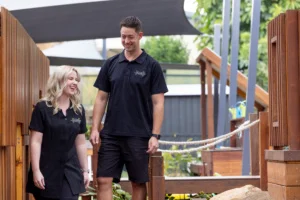
The Collective allows for educators to have autonomy in how they document and plan for children. This supports a strength-based approach with our team,” according to Susan Cooper, group pedagogical leader for Little Scholars. “It highlights individual skillset of our educators and value the multiple voices being heard, embedding a collective response to children’s learning.”
Alice says it’s still a process that Little Scholars is undergoing.
“Ultimately, it’s important that we have educators here who feel stable and like they want to contribute and that they are getting recognised for the things that they’re doing, and we believe The Collective does that.”
Jae Fraser, founder of Little Scholars agrees. Little Scholars wants to ensure educators feel seen, heard and valued, because our educators’ passion for our children and their education is why we’re delivering exceptional educational play-based programs.
“We really care about and listen to our teams, so when they are feeling pressured due to significant amount of paperwork, we act,” says Jae. “It’s all about the educators and the children, so if we can achieve amazing outcomes without all the unnecessary paperwork, and children and educators are interacting and engaging in really meaningful ways – this is what we need to focus on.”
More about Little Scholars:
Book a tour today!
At Little Scholars, we have four pillars that underpin everything that we do at Little Scholars – for our children, families, educators, and our community.
As part of our annual awards, we have four awards dedicated to those Little Scholars’ values – learn, grow, inspire and contribute. This year, while our award-winning educators certainly personify all four pillars, but with their unique special skills and achievements, we’ve declared one clear winner for each pillar.
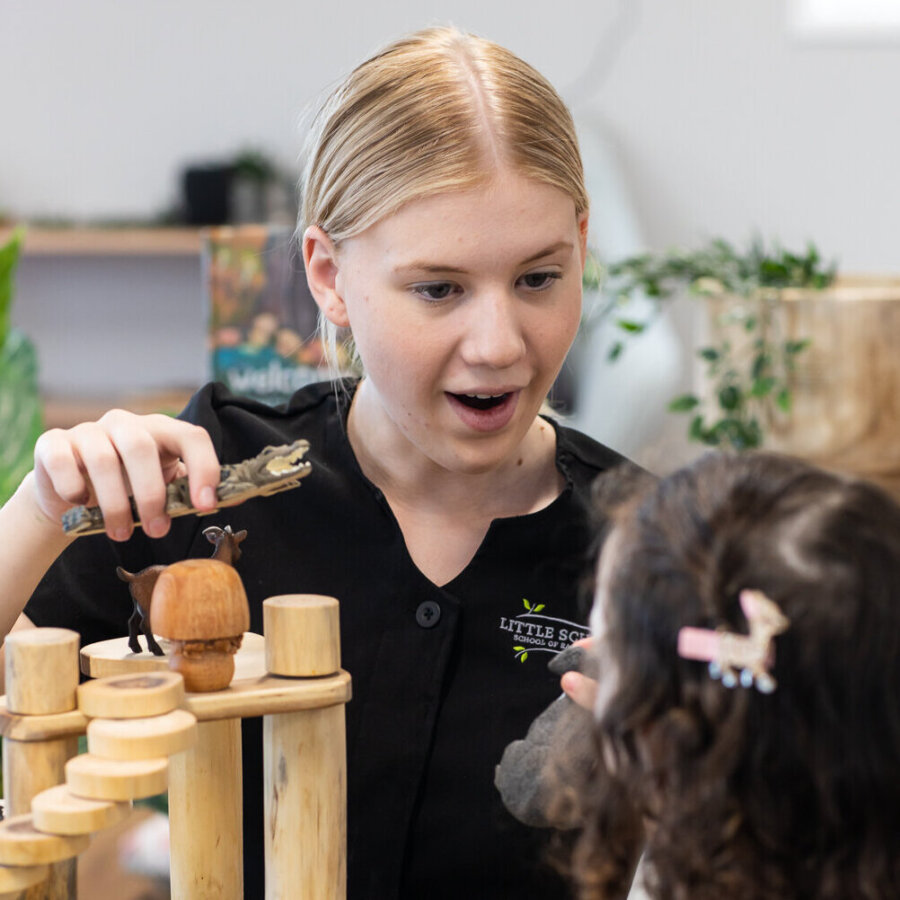
Ellissa at our Ormeau Village campus was named winner of the Pillar Award in the Learn category because she stepped up to become a lead educator, and she is happy to keep learning from her peers and further her education in the sector.
Ellissa is finishing up her studies with her Cert III, then she’ll be moving onto her Graduate Diploma.
From her submission: Ellissa has stepped up into her Lead role during last year and we have watched her grow from assistant to well-deserved Lead and take charge in her space, leading her colleagues while taking feedback on board and striving to excel.
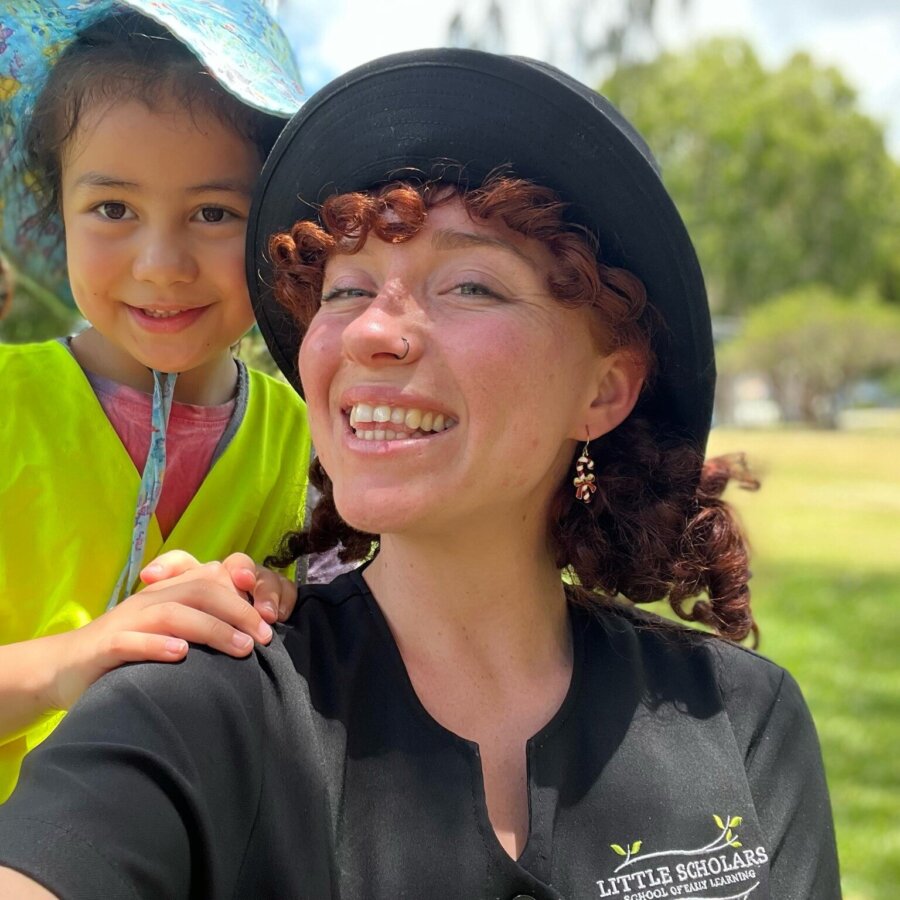
Ella’s experience as a parent with a child at Little Scholars was actually the reason she became an educator herself! Ella is the recipient of an Inspire Little Scholars Pillar Award 2023.
Ella’s nomination
Ella is an educator with the Little Scholars Deception Bay campus, which recently was assessed Exceeding under the National Quality Framework for Early Childhood Education and Care.
In Ella’s nomination to us, it said, “Ella is an inspiration for all in the Deception Bay community. We had some outstanding feedback from the department through our assessment and rating process. Before the process even started, the assessor had mentioned the passion and authenticity observed in Ella’s interactions with our children, families and community. In the assessor’s words – ‘she could sit and watch Ella all day long.’ From one of Ella’s colleagues, ‘the educator she is, is who I aspire to be in my future teaching career. She is strong, but also so caring to each individual child.’
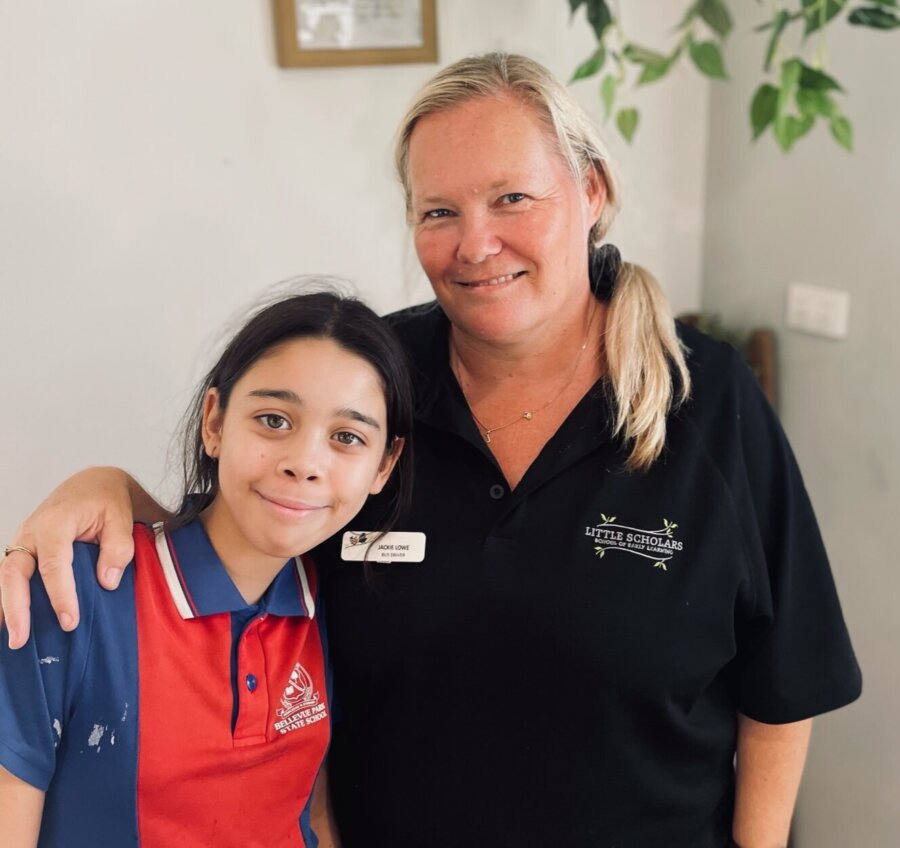
Jackie is an educator at Little Scholars Ashmore campus. In her first year working for us, she was nominated for a Pillar award!
Jackie’s nomination
Campus manager Elise said, ‘Jackie is our jack of all trades! Jackie fits many hats at our campus. From driving the bus to being in the studios to going on vacation care, she wears her many hats with a smile on her face. Her bubbly nature and willingness to help the team wherever needed is admirable. We appreciate her dedication and consistent contribution to the campus.
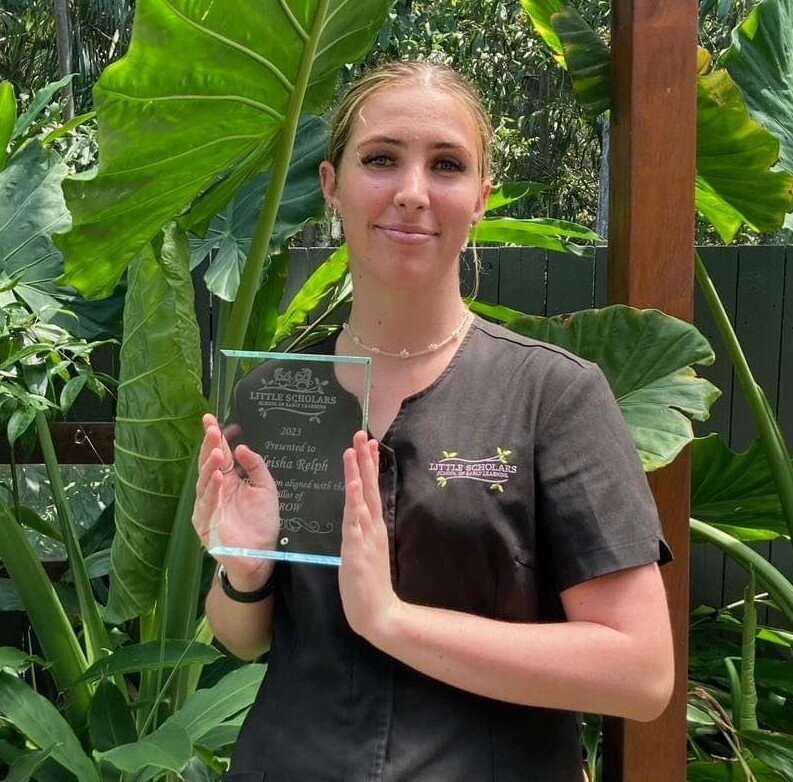
Aleisha has remarkable attributes and we’re told her growth as an educator has been propelled by her enthusiasm to contribute, learn and inspire her team and go above and beyond not only for children, but families as well.
I have been an educator since the end of January 2020. Prior to this, I was a trainee at Little Scholars Nerang since September of 2018 studying my Diploma.
Aleisha’s nomination
Aleisha at our Nerang campus was named winner of the Pillar Award in the Grow category because she’s grown from a trainee at the campus just a few years ago to now full time lead educator, her gentle touch, her willingness to inspire and help others, she was a clear choice for campus manager Renee.
Aleisha is no stranger to accolades, she won Educator of the Year – Peer Choice twice previously. Little Scholars was her first employer in her early childhood education career!
For parents leaving their babies or young toddlers in care for the first time, it can be a stressful experience. When the paid maternity leave ends, parents must make the decision of whether or not both parents will work outside the home. The choice to leave their young child in early learning and care can create a number of concerns, one big one being how their relationship with their young child will be affected if the parent is not spending the majority of the child’s time with them. These are valid concerns, but research has suggested infant attachment to their parents is not generally affected by being in care, so long as the parents have a strong bond with the child when they are with them.
Understanding Attachment Theory
Attachment theory was first introduced by John Bowlby, a British psychoanalyst and psychiatrist in the 20th Century. Bowlby observed that early attachments could significantly affect a child’s emotional development and adult relationships in later life. He concluded that children between six and 30 months were very likely to form emotional attachments to familiar caregivers, especially if the adults are sensitive and responsive to child communications. This led him to propose the Attachment Theory after he studied the negative impact of maternal deprivation on young children.
Mary Ainsworth, an American psychologist who worked under Bowlby early in her career, later devised an assessment technique called the Strange Situation Classification (SSC) to investigate how attachments might vary between children. Her research in Uganda, then her well-known Baltimore Study in the 1960s, in which she noticed distinct individual differences in the quality of mother-infant interactions over time, led her to categorise these different attachment styles into three types: secure attachment styles, insecure attachment styles, and not-yet attached. She found a connection between maternal sensitivity and secure attachments. Sensitive mothers were familiar with their babies, provided spontaneous and specific detail about their children, and babies of sensitive mothers cried less and felt free to explore in the presence of their mother. Generally, she concluded that babies of sensitive mothers have secure attachments.
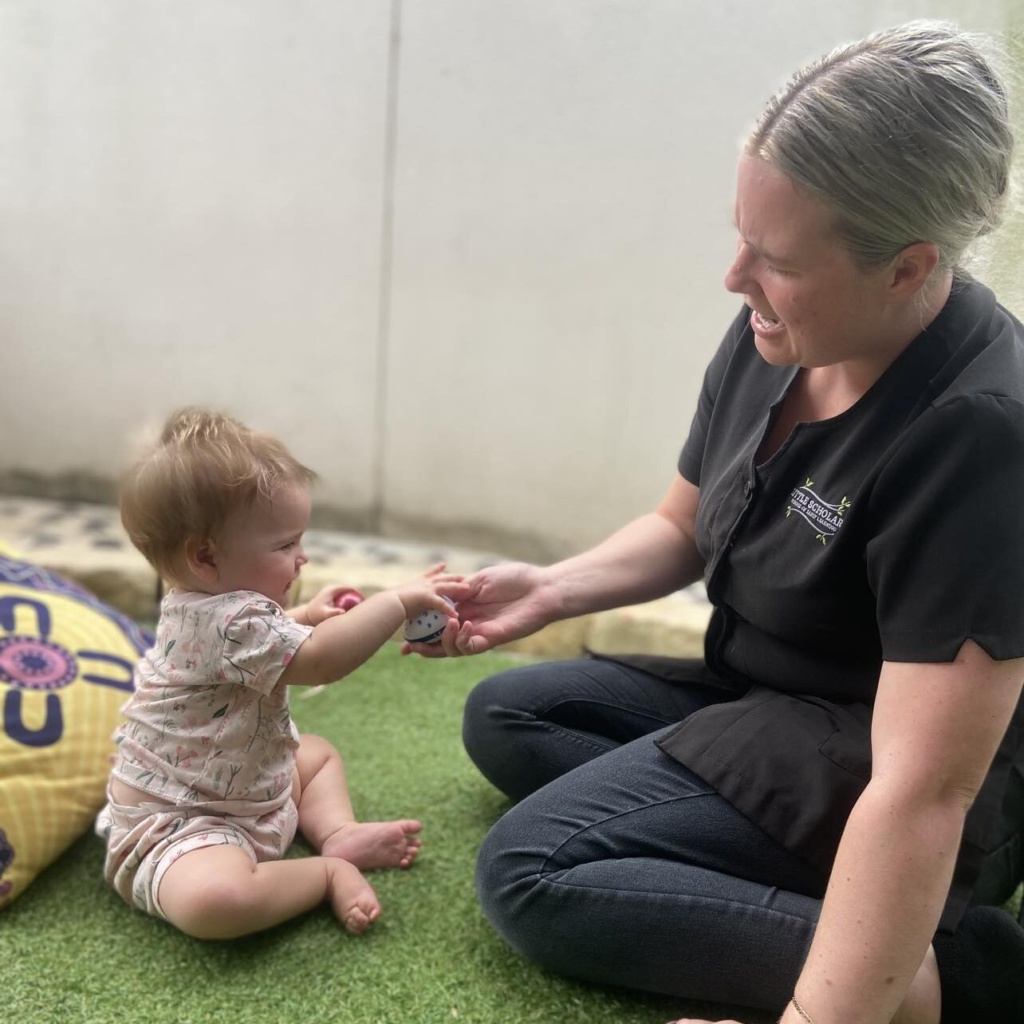
While Bowlby’s initial findings focused on maternal deprivation, later studies have contradicted his emphasis. Schaffer & Emerson (1964) found that specific attachments started at about eight months and shortly thereafter, the infants became attached to other people. By 18 months, very few (13%) were attached to only one person, and some had five or more attachments. Rutter (1972) noted that several indicators of attachment, such as protest or distress when an attached person leaves, have been shown for various attachment figures – fathers, siblings, peers, and even inanimate objects. Weisner, & Gallimore (1977) found that mothers are the exclusive carers in only a very small percentage of human societies, and often there are a number of people involved in the care of children, such as relations and friends. Van Ijzendoorn, & Tavecchio (1987) argue that a stable network of attachment figures is more important than the number of figures.
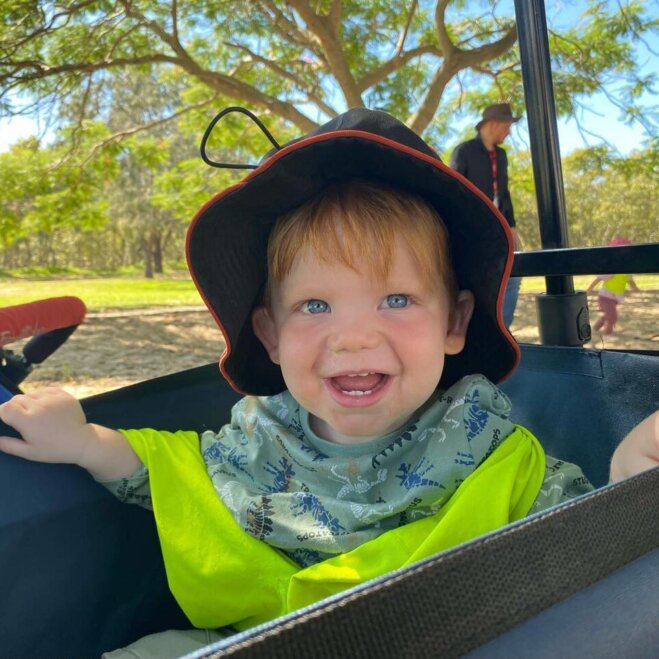
Some studies in the 1970s and 1980s found negative effects on young children in daycare and attachment, but arguments against those studies included that few mothers worked outside the home during those times, and the quality of the care facilities themselves were perhaps lower than you’d see today. Since then, much has changed, and research has shown many positive effects of early learning and care for young children, including social relationship development.
One study conducted in Norway found that infants who were in early learning settings scored higher on tests measuring cognitive and language development than infants who were cared for at home. Another study conducted in Canada found that children who attended high-quality care were more likely to to have better cognitive and language development than those who attended lower-quality care or stayed at home.
Both the Norwegian and Canadian studies highlight the importance of high-quality early learning for children’s cognitive and language development. High-quality early learning centres provide a safe and stimulating environment where children can learn and develop essential skills. They also offer opportunities for children to interact with other children and adults, helping them develop social skills and emotional intelligence.
In Australian early learning settings, we follow a National Quality Standard which lays out seven quality areas on which centres should meet or exceed. The fifth quality area is ‘relationships with children’ and its intent is to promote relationships with children that are responsive, respectful and promote children’s sense of security and belonging. Relationships of this kind free children up to explore the environment and engage in play and learning.
Please rest assured, when you’re leaving your child at one of our campuses, your child’s wellbeing is our number one priority. We support children to develop in a holistic manner, including socially, cognitively, physically and emotionally. If there are tears (from either of you!), we’re here for both of you, and know it means your relationship with your child is not only in tact, but flourishing.
Read more:
What an incredible asset online media has become when it comes to raising or educating children. From YouTube to Instagram, there’s a wealth of expert information at your fingertips that previous generations simply didn’t have. Thanks to online media, parents and educators can now access an array of information, tips, and tricks on child development, parenting, and education.
And of course, podcasts are an excellent way to learn while on the go. You can listen to them while commuting, during your daily walk, or even before bed. Here we have compiled a list of our favorite parenting and child development podcasts, divided into categories for parents and educators. Check them out!
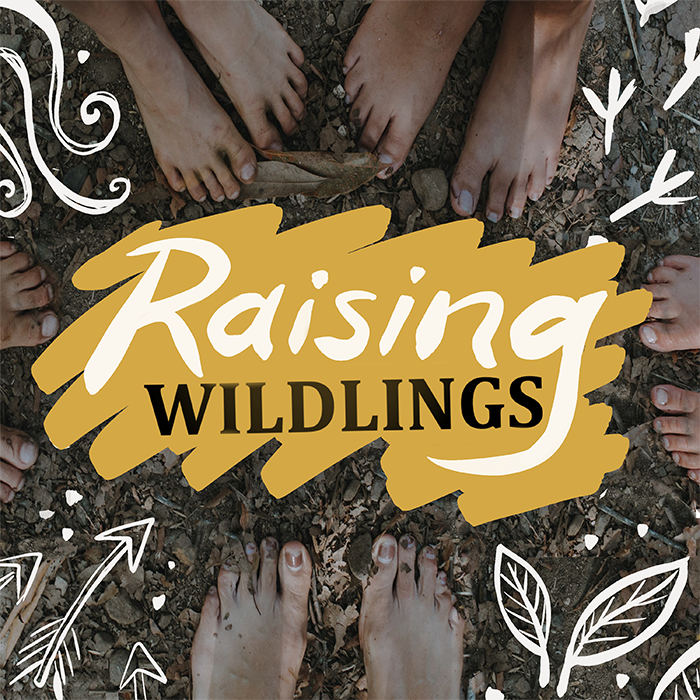
A podcast about parenting, alternative education and stepping into the wilderness with children. Each week, Nicki Farrell and Vicci Oliver interview experts who inspire them to answer questions about parenting and education. They also share stories from families who took the leap, and are taking the road less travelled.
Maggie Dent, one of Australia’s favourite parenting authors and educators gives you practical tips and answers to your real-world parenting dilemmas.
Each episode of Unruffled addresses a reader’s parenting issue through the lens of Janet’s respectful parenting philosophy, consistently offering a perspective shift that ultimately frees parents of the need for scripts, strategies, tricks, and tactics.
Listen to conversations with experts on a variety of topics related to children’s mental health. Episodes offer practice wisdom from experts in the field and will give you an insight into the work and values of the National Workforce Centre for Child Mental Health.
Based on the popular RCH Kids Health Info fact sheets, the Kids Health Info podcast explores common topics and concerns with experts in children’s health. Hosts Margie Danchin, Lexi Frydenberg and Anthea Rhodes are all paediatricians and mums, so they know first-hand what keeps parents up at night. Every episode features guest experts in a range of child and adolescent health specialties, and lots of practical tips and advice.
Hamish Blake chats with other dads he really admires about their approach to ‘dadding’, and in the process hopefully learn a little, steal some of their hard earned wisdom and help dads dad a tiny bit better.
All humans learn through play. Join Kristen RB Peterson of Learning Wild as she chats all things early childhood education, preschool, nature and forest school, homeschool and parenting.
Hosted by international keynote speaker, educator and founder of Wearthy; Lukas Ritson, Play it Forward is an educational podcast about the importance of play. With the increase of technological advancement, it has never been harder to get kids playing outside
Early Childhood perspectives is a fortnightly podcast devoted to exploring the often overlooked concepts and issues of the Australian Early Years Sector.
This podcast covers meaningful topics in early childhood education with some of the sector’s most experienced educators and subject matter experts. With each short episode, its aim is to provoke minds and inspire excellence in early childhood education.
Barbi Clendining from Firefly HR and Saurubh Malviya from We Belong Education have teamed up to bring to you a fun and informative conversation and talk about every aspect of the Out of School Hours profession.
OK, we fibbed. It’s not JUST Australian podcasts. Here’s a few international podcasts that are quite popular with the kids these days. (and by kids, we don’t mean baby goats, or children really, but we’re just trying to sound cool)
Building creativity one leaf and bolt at a time. Join Dr. Carla Gull, American educator and mother of four boys, as she talks about getting outside and exploring loose parts.
A funny take on parenting with UK hosts Rob & Josh as they share their tales of parenting woe and chat to celebrity parents about how they’re coping, or not coping.
Join American clinical psychologist and mother of three Dr. Becky Kennedy on her weekly podcast, as she takes on tough parenting questions and delivers actionable guidance—all in short episodes, because we know time is hard to find as a parent. Her breakthrough approach has enabled thousands of people to get more comfortable in discomfort, make repairs after mistakes, and always see the good inside.
Each episode discusses issues today’s fathers face navigating work, parenthood, relationships and play. We share stories of dads who are active and engaged in the decisions, the drudgery, and the pains and the joys of parenthood. Our parenting podcast not only brings modern dads into the conversation, but also – regardless of gender – our spouses and partners, friends and colleagues, and leaders in business, entertainment and media.
Our days seem to be getting more and more hectic. There’s the 9-5 slog, rushing to and from work, drop-offs and pick-ups at daycare and school, running to appointments, weekends are for relaxing, or are they actually for rushing to children’s sports, house and yard maintenance? Even being more connected to devices means we might be losing connections with each other. We always seem to be busy, finishing one task or appointment so we can cross it off the endless list.
If we reflect on our own childhoods, do our children’s developing years look like ours? Maybe not. We likely (and hopefully) have memories of aimless play, exploration and time to dream.
Even going on family walks may come with encouragements of ‘c’mon Freddy, let’s go!’ or ‘keep walking’, but why? Challenge yourself not to give your children any instructions for the next minute the next time you’re out for a walk. Was 60 seconds hard to get through? The funny thing is, on walks, you’re probably not even in a rush.
Your children may constantly feeling hurried, rushed, pushed to keep moving. This can create feelings of anxiety, stress and resentment.
There’s a movement brewing the last few years, called Slow Parenting. Have you heard of it, or pondered it yourself?
According to a 2015 article in the Boston Globe, slow parenting ‘cherishes quality over quantity, being in the moment, and making meaningful connections with your family.’
In the article, Carrie Contey, a prenatal and perinatal psychologist, says young children need a balance of activity and down time.
“In early development, children are still wiring. They need to have moments of doing and moments of being for integration to happen,” says Contey. “If they don’t take space for integration that leads to meltdowns and overtiredness.”
Need some ideas on how you can slow down your parenting, and in a way, time?
Next time you’re about to hurry your child, take a moment to think about why, and how you can approach it differently. If it’s about being late for something say bed time, will an extra 15 minutes affect them adversely once and a while? What about what they stand to gain from the extra time? If it’s getting to school and work on time, reflect on how you can alter your routine to allow for a bit of flexibility. You never know what small moments will make up lifetime memories for your child.
Do you have a little one who is eager to learn and likes technology? Apps can improve skills in fine motor skills, reading, phonics, maths, problem-solving and more. Research suggests that after age two, children may benefit from some types of screen time, such as programming with music, movement and stories. We’ve compiled a list of what we think are some of the best educational apps for children aged three to five years.
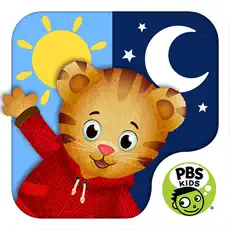
Pre-school aged children can learn about morning and bedtime routines with PBS KIDS’ Daniel Tiger. Help Daniel Tiger get ready for school in the morning and for bed at night through imaginative play and songs.
We like it because there are sing-along songs that make routines fun and a musical timer to keep routines such as teeth-brushing on track.
Pros: Simple, age-appropriate for toddlers.
Cons: There’s no order required for following the routines, and it’s limited to morning and evening routines only.
Available on the App store and Google Play
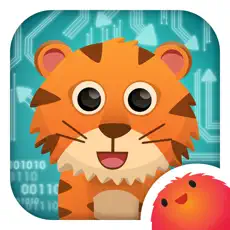
Pre-coding logic game for kids
Why? We think introducing children to coding early is gives children a head start in learning how to code with Hopster Coding Safari. This animal themed pre-coding logic game to help little ones learn the fundamentals of coding. Children are presented with a series of logic problems to solve, getting different animals to where they need to be.
Children learn: The fundamentals of computational thinking
This game will engage young children in computational thinking – the fundamental techniques needed to understand coding – without them realising they are learning!
Pros: Wide range of activities, links to early years learning objectives.
Cons: Paid subscription based and not a lot offered without paying.
Available on the App store
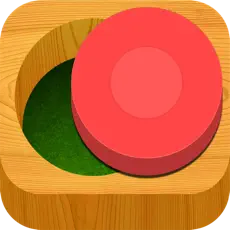
Shape-sorting puzzles great for fine motor skill development
What makes Busy Shapes so clever is the way the puzzles gently gets more challenging, motivating little ones to find solutions to each puzzle through experimentation. From shape-changing to colour-mixing to hidden holes, we’re impressed with how the game spurs out-of-the-box thinking, stimulating curious young minds. The app’s designers say it’s inspired by the pioneering works of child theorist Jean Piaget (1896-1980), who believed that “children are little scientists” and that a child’s thoughts are built through experiences that encourage him or her to engage in the reasoning process.
Pros: Free version includes a lot of activities. The challenge increases, with multiple objects and holes of different shapes, moving objects, obstacles to get around or to move, and finally the need to use tools to move the objects. There’s no direction and no help. Children must explore and discover on their own how to get the objects into the holes.
Cons: Doesn’t seem to be a way to get to earlier levels.
Available on the App store and Google Play
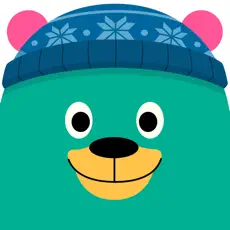
Khan Academy Kids is a free, fun, educational program with thousands of activities and books that will inspire a lifetime of learning and discovery for children ages two+.
The app is designed by experts in early childhood education to guide young learners on a delightful journey through key skills in maths, reading, phonics, writing, social-emotional development, and more. It includes thousands of lessons, activities, books, and games that are age-appropriate for preschool through year two. With catchy songs and yoga videos, little ones will also have fun moving, dancing, and getting the wiggles out.
Pros: The variety of learning topics and the creative approach to activities offer breadth and depth without it feeling overwhelming.
Cons: Animations could use more captioning; written instruction and language options.
Available on the App store and Google Play
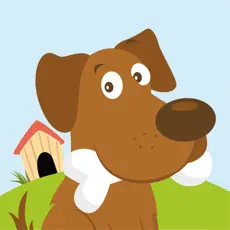
This app aims to strengthen children’s cognitive skills, concentration and memory with activities such as tracing letters, spelling with an A-Z of animals, counting, jigsaw puzzles, spot the difference, pet salon, feed the animals and more. Your toddler will really enjoy playing this game as every little action has been thoughtfully designed for an effortless gameplay.
Pros: Fun cheerful characters, good for young learners working on fine motor skills, problem-solving skills, spelling, and language acquisition.
Cons: Limited activities and full screen ads in free version, some complaints about price of full version.
Available on the App Store
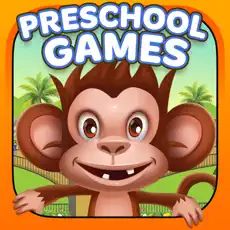
This app for toddlers has more than 1000+ fun and educational activities and games! This delightfully interactive smart app helps children learn ABCs, numbers, colours, shapes, and more. Children can skip, sing, and dance to popular nursery rhymes with Moolingo the monkey.
Pros: The amount of activities.
Cons: Paid subscription service.
Available on the App Store and Google Play

Thoughtfully-made educational games for children aged two to eight, including early literacy skills using a comprehensive program full of interesting activities, building blocks for maths confidence, and tools for navigating social skills, empathy, and confidence.
Pros: Personalised to children’s interests across subjects, learning grows with child.
Cons: Paid subscription service.
Available on the App Store and Google Play
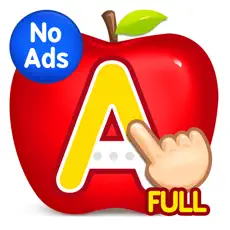
Features letters and word learning games to help children learn basic tracing of alphabet, letters, words and numbers one to 10.
Pros: Full app is free.
Cons: Some complaints on sound issues.
Available on the App Store and Google Play
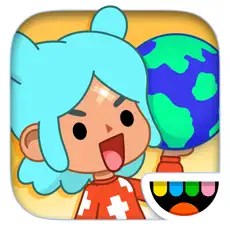
The Toca Boca suite of apps for children is an interactive way to explore the world by cooking, cutting hair, building a neighborhood, and taking care of pets. For the youngest users, try a role-playing app like Toca Doctor or a simple app like hairstyling (children love the hairdryer!). And as they grow, children can design and build their own city with the Toca Life apps.
Pros: Dozens of games to choose, including some free, and ome games can be purchased as a bundle for discounted pricing. Variety of games for beginners, animal lovers, budding engineers, and more.
Cons: Not all apps will be of interest to all.
Available on the App Store and Google Play
Related:
We are excited to welcome Susan Cooper, our new group Pedagogical Leader for Little Scholars School of Early Learning.
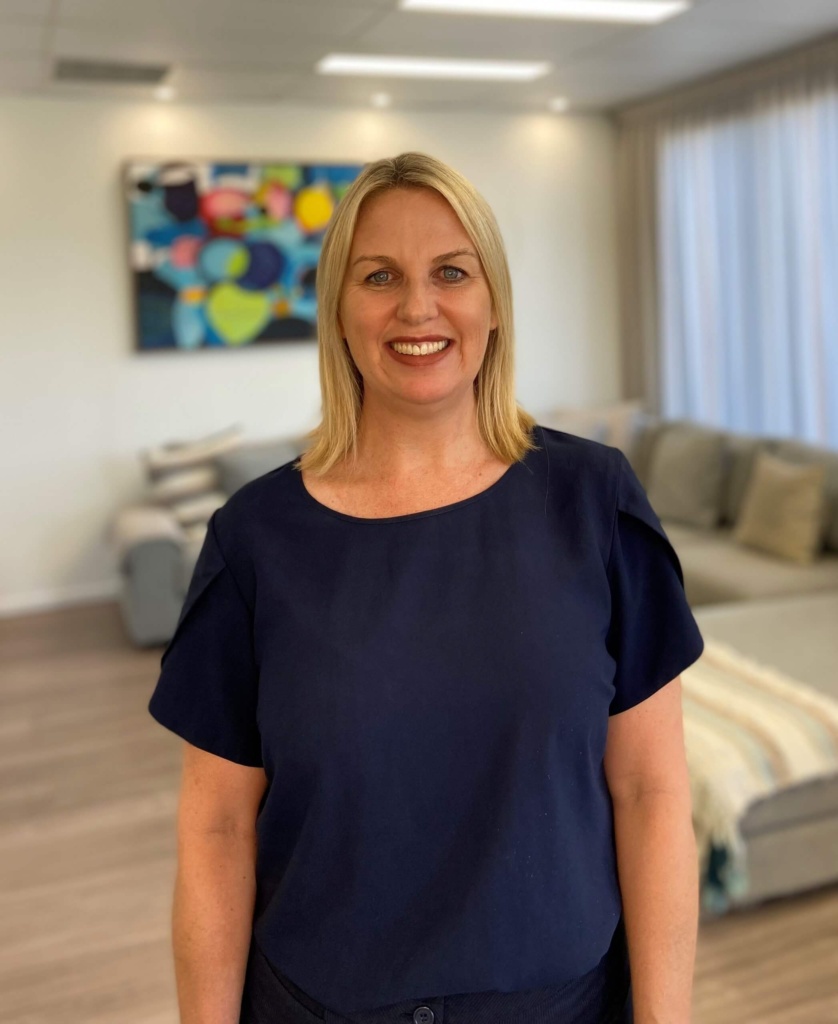
Susan will support educators to guide and influence children’s love of learning by fostering family engagement, ensuring fidelity to Little Scholars curricular philosophy, using data to evaluate the effectiveness of the learning program, and ensure we are exceeding standards to optimise learning environments and prepare children for successful futures.
Through pedagogical leadership, Susan hopes to raise the benchmark to overall quality of teaching and recognises that providing children with strong foundations for ongoing learning and development is underpinned by a strong pedagogical practice.
Pedagogy is a form of teaching strategies in the practice of educating. It is the techniques, strategies and approach taken by educators to let learning and development to take place. Pedagogy refers to the interactive process between the teacher, the learner and the learning environment and provides reason to the design of learning spaces, materials, and resources on offer. Pedagogical Leadership supports educators in relating their pedagogy to content knowledge and educational theories.
Susan’s primary role will be to provide leadership to pedagogy and support educators in relating their pedagogy to content knowledge and educational theories. Susan will be working across the 13 Little Scholars Early Learning Campuses mentoring and coaching our educational leaders to implement curriculum delivery. Susan will inspire educators to employ new approaches to their teaching against up-to-date research, which will shape the quality of experiences and interactions across our campuses.

Susan has worked in the Early Childhood Sector for more than 16 years and has extensive knowledge in the field of Pedagogical Practices. Having worked in many fields within the Education sector, from operating a family day care, to being an educator within long day care sector as well as outside school hour care services, through to management and leadership.
“To take on this role is exciting as I can share my passion, influencing pedagogy approaches and practices and place emphasis on children’s play to promote continuous child development and quality outcomes for children,” she says.
Susan is passionate about advocating for children’s rights and is a firm believer of a child-centred approach and that the quality of interactions between adults and children play a fundamental role in stimulating early learning.
According to Jae Fraser, founder of Little Scholars School of Early Learning, pedagogical leadership is about leading or guiding pedagogical practice, supporting Little Scholars educators in their work with children and families, and translating the Little Scholars values and principles into practice.
At Little Scholars School of Early Learning, we’re dedicated to shaping bright futures and instilling a lifelong passion for learning. With our strategically located childcare centres in Brisbane and the Gold Coast, we provide tailored educational experiences designed to foster your child’s holistic development.
Let us hold your hand and help looking for a child care centre. Leave your details with us and we’ll be in contact to arrange a time for a ‘Campus Tour’ and we will answer any questions you might have!
"*" indicates required fields